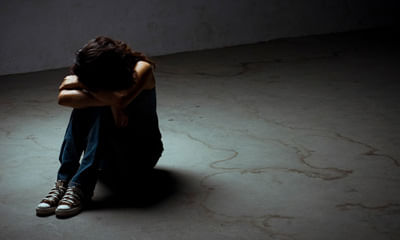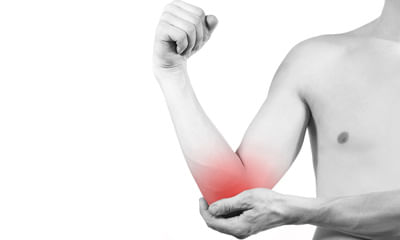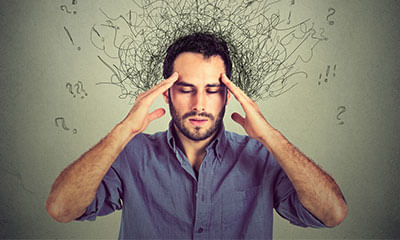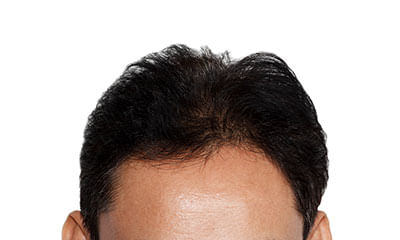How To Make Voice Sweet
My son stopped psychiatry medicine gradually but now he have mind voice and unwanted thoughts and fear how will control ...
Ask Free Question
Hi lybrate-user! sorry to know the difficulty your son is facing I could understand the importance of what a mother could do you need to give him the strength, energy and support him in handling this situation of fear. Probably would be the after effect of the medications just wait for few days .may be a week or so. If the symptoms still persist it is advisable that the psychotherapy and counseling would be of great benefit to overcome this. Combined with meditation and yoga. Take care of your son.
I am suffering voice hoarseness from so many years, i'm in depression because of this problem, my voice is very weird, n ...
Ask Free Question
Hi sir hoarseness of voice may be due to many factors like vocal cord inflammation gerd vocal cord cysts or polyp overusage of voice neurological problems etc underlying cause should be treated share your detailed case history to give proper treatment and guidance for consultation and treatment
Respected sir I ravinder singh from kharar facing hyperthyroidism I just do test and found this problem I was facing thi ...
Ask Free Question
I am sorry to hear about your concern but will be happy to assist you. Many factors can cause a person to wake up with a racing heart, including diet, stress, sleep deprivation, and arrhythmia. Sometimes, upon waking, it may feel as though the heart is beating very fast or pounding in the chest. A person may also feel shaky or anxious when this happens. Let's connect over a call so that we can discuss your concern in details and make a suitable treatment plan for you.
I Think I'm suffering from depression coz sometimes my brain is very heavy and in sleep I cant move my hands and body so ...
Ask Free Question
This is not depression. It happens during a certain stage of sleep when your sleep is very deep. It happens with many people. So don't worry about depression.
My voice is breaking. Can't speak clearly. .what to do to make my voice sweet and better. Please tell. ...
Ask Free Question
Use a tablespoon of honey. You can take in a tablespoon of honey alone or with hot lemon tea to effectively coat your throat and help you achieve a smoother voice. You can do this right before any vocal performance to help relieve stress and soreness of throat and vocal cords.
I feel nervous some times. I have been diagnosed with major depressive disorder and used medication. I can not speak in ...
Ask Free Question
Hello, Need not to panic, Build up positive attitude, U can follow simple breathing exercises to calm your mind Practice deep breathing n while doing so practice of taking in all positive thoughts while breathing in n leave out all negative thoughts while breathing out Practice talking by looking urself in mirror.
Sir I tested my cbc at thyrocare in 23 Jan 2018 My TLC 5.24,RBC-5.52, HB-17.4 MCHC-34. 6TPC-305 & OTHERS ARE WITHIN REFE ...
Ask Free Question
It's showing that you are suffering from over activity of your sympathetic nervous system. If you want to treat without medication, it may take little time if you go through meditation with proper diet and exercise. But if you need some medical treatment then I will suggest to search any pain physician in your area. He will definitely support you.
Sir I am suffering social anxiety disorder from last 3 years.In the college when sir starts roll coll I cannot response ...
Ask Free Question
Hie lybrate-user. Social anxiety is more than just shyness or fear. Social anxiety begins with a fear of being judged negatively and results in self-consciousness and avoidance of social situations. Many people with social anxiety disorder often avoid situations which make them feel as though others will notice their anxiety and they will become humiliated. Social anxiety disorder leaves a high risk for substance abuse and depression due to attempts at trying to self-medicate. If you are experiencing social anxiety or feel as though you may have social anxiety and would like to seek treatment, visit your primary care physician for more options. You may also take the Liebowitz Social Anxiety Scale (LSAS) to assess the way social phobia may be affecting your life. Managing Your Social Anxiety i) Cognitive-Behavioral Therapy One of the most important things you can do is work with a therapist. Cognitive Behavioral Therapy (CBT) has proven to be an effective alternative to drug therapy. Cognitive behavioral therapists focus on your behavior and what you are thinking to change negative thoughts into positive thoughts, and negative behavior into positive behavior. The most common behavior problem for people with social anxiety is avoidance. Many will avoid situations in which their anxiety is provoked. Working with a CBT helps the individual approach social situations to realize that nothing bad is going to happen, this reduces anxious feelings. It also creates a personality for the person to face her fears and realize that her fears do not control her. Ii) Create a Hierarchy of Fear This is another way to face your fears and take back control of your life. Creating a hierarchy of fears is a technique that allows you to recognize the things that give you anxiety. It works by creating a list of all the things that give you anxiety and ranking them in order of least anxiety provoking to most anxiety provoking. Then, beginning with the least anxiety-provoking occasion or behavior, you expose yourself to it. As you master each item on your list, you move up the “ladder” until you can participate in the most anxiety provoking occasion or behavior without anxiety symptoms. Eliminate Safety Behaviors Many people with social anxiety have created safety behaviors that attempt to suppress their anxious feelings and create less humiliation. These types of behaviors vary from complete avoidance of situations, avoidance of eye contact, and extreme use of drugs and alcohol to conversation rehearsal and fast-talking. These behaviors are used to eliminate the anxiety that occurs from everyday situations which normally cause extreme stress in individuals with social anxiety disorder. The belief here is that these behaviors will “save” the individual. The problem with these behaviors is that they become a mechanism and a lifestyle in which a person believes the only way to get through certain situations is by performing the behavior. Meditation and Mindfulness Meditation is a popular technique for reducing the feelings of anxiety, stress and other tensions. Meditation is an amazing way to calm down, focus your mind, and center your thoughts. Practicing breathing techniques can help relax your mind and body, and stop those thoughts that are racing and raising your anxiety. Meditation is not as complicated as it sounds. There are plenty of guided meditation video clips and audio across the internet. It is important when meditating to do so in a quiet place, away from distractions, while keeping your eyes closed to further block out any disturbances. You can notice a tremendous difference in your mental health through as little as 10 minutes of meditation a day. Mindfulness is the practice of being aware and doing nothing about it, paying attention on purpose, and being in the present moment non-judgmentally. This means feeling your anxiety and not shutting it off. It is paying attention to every thought, emotion, and sensation your body feels. It takes practice but it is not impossible. Mindfulness allows your body to build emotional tolerance as well as allows you to choose your reaction. Permitting uncomfortable feelings to come and then choosing how to deal with them gives you power over anxiety and not anxiety power of you. Practice Self-Love and Self-Acceptance Humiliation plays a leading role in social anxiety, and safety behaviors are sometimes used to try to eliminate humiliating experiences. Being yourself and accepting who you are is a sure way to manage the self-esteem aspect of social anxiety. It is safe to say that negative self-esteem can stir feelings of anxiety in social situations. If you don’t think highly of yourself you won’t expect others to either. Low self-esteem may also cause you to believe any negative thoughts accompanied with your anxiety. The best way to get rid of these negative thoughts and feelings about yourself is to change them into positive ones! Embrace the things that make you unique, the good and the bad. Recognize your strengths and weaknesses but don’t let them interfere with how valuable or worthwhile you see yourself. Explore the parts of yourself that you are not able to accept, and pass no judgement on yourself. You are your hardest critic so it is important to be kind to yourself and love yourself, flaws and all. This workbook aims to help you to: If you have ticked a number of these boxes, you may be experiencing symptoms of social anxiety. However don’t be alarmed, this is very common and there are things you can do to help. You will find some useful strategies in this workbook. Referenced- How To Overcome Shyness: The Ultimate 3 Step Guide - Moldite Socially anxious people often feel under the spotlight and believe that everyone is thinking badly of them. They often hold beliefs that they are no good socially, are boring, and that they have nothing interesting to contribute. After social events, they tend to pick out parts that they believe went poorly and ‘beat themselves up’ over them. To cope with social anxiety, people tend to avoid social situations if possible (e.g. Pubs, can noteens, queues etc). If they can’t avoid them, they tend to try and stay in the background and attract as little attention to themselves as possible (e.g. Say very little). Unhelpful thoughts also typically play a damaging role just prior to people entering social environments as they predict they will perform poorly (e.g. I’ll have nothing to say). Similarly, unhelpful thoughts influence people during social situations (e.g. I’m making a fool of myself), as they assume they are not coming across well. To make matters worse, after social situations, people often analyse their performance and assume they have performed poorly. When considering these factors, it is easy to see how unhelpful thoughts stop people overcoming their social anxiety. This is because by avoiding social situations, people stop themselves having positive experiences that could disprove some of their unhelpful thoughts. Furthermore, the longer someone avoids a social situation, the more daunting it becomes and it is increasingly difficult to face. A final point worth noting is that ‘safety behaviours’ can result in what is known as self fulfilling prophecies. For example, by staying quiet in social situations, people may come across as ‘distant’ and others may respond by making less of an effort. As a result, their beliefs that they can’t mix well remain in place. The following section will help you begin to recognise if you are thinking about things in an unhelpful or unrealistic way, and discuss how you can start to make changes to this. By doing so, you can learn to see things in a more realistic light which can help to reduce your social anxiety. You might have unhelpful thoughts about all kinds of things. Here are some examples: Once you have asked yourself these questions, you should read through your answers. Try to come up with a more balanced or rational view. For example: Although we do this in the hope being reassured that we are not visibly anxious, this strategy actually just makes things much worse. This is because we tend to overestimate how visible our anxiety is and this of course makes us feel even more self conscious. Also, by focusing on ourselves, we are prevented from fully concentrating on the conversations around us. This naturally makes it more difficult to join in properly and we usually end up interacting less well than we could. This typically strengthens our beliefs that we are no good in such situations. The reality is that anxiety is a lot less visible than we think. Often we have no idea if someone is anxious or not and it can help to remember this. Similarly, when we feel socially anxious, we tend to spend time monitoring how well we are performing during social interactions. This too prevents us from paying proper attention to the conversations we are engaged in. For example, we may spend time trying to figure out if our voice sounds shaky, or go over and over the things we have said in our minds. Again, by doing so, we end up finding it hard to follow conversations which likely makes us perform worse. Given all of this, it is helpful to try to remove this tendency to focus on ourselves. Below you will find tips designed to help you during social interactions: Thank you all the Best TRY THESE NATURAL STEPS IF IT DIDN'T WORKED THEN GO FOR FACE TO FACE COUNSELLING PROCESS.
I have generalized social anxiety and I'm confused b/w brahmi and ashwagandha which is more beneficial and makes me conf ...
Ask Free Question
Hi lybrate-user. Brahmi and Ashwagandha both have its own benefits but for different purposes like for example: Brahmi: Potential therapy for chronic discomfort and neuropathy, memory enhancer, aphrodisiac, and general tonic, Stress reduction, short attention span, foggy memory, and blurred focus. Wherein, Ashwagandaha is for Generalized Anxiety Disorder which is again related to stress, weakness and to gain weight. The Term Generalized Social Anxiety is overall different in psychology: Its important to understand the symptoms of what makes you say that you are suffering from Social Anxiety. Emotional signs and symptoms Excessive self-consciousness and anxiety in everyday social situations Intense worry for days, weeks, or even months before an upcoming social situation Extreme fear of being watched or judged by others, especially people you don't know Fear that you'll act in ways that will embarrass or humiliate yourself Fear that others will notice that you're nervous Physical signs and symptoms Red face, or blushing Shortness of breath Upset stomach, nausea (i.e. Butterflies) Trembling or shaking (including shaky voice) Racing heart or tightness in chest Sweating or hot flashes Feeling dizzy or faint Behavioral signs and symptoms Avoiding social situations to a degree that limits your activities or disrupts your life Staying quiet or hiding in the background in order to escape notice and embarrassment A need to always bring a buddy along with you wherever you go Drinking before social situations in order to soothe your nerves Now Generalised Anxiety is different from Social Anxiety. Here are the symptom: Excessive, ongoing worry and tension An unrealistic view of problems Restlessness or a feeling of being "edgy" Irritability Muscle tension Headaches Sweating Difficulty concentrating Nausea The need to go to the bathroom frequently Tiredness Trouble falling or staying asleep Trembling Being easily startled To answer your question. Bhrami and Ashwangadha will not really help you if you have Social Anxiety or Generalised Anxiety. Reason being it will not change your thought process. Those are only good from a perspective of keeping your Body healthy. Please identify to your symptoms and visit a counselor near you. I hope this helped. Take care.
Amla juice is used to prevent from white hair. Kindly I need. The help of doctors to look into it. ...
Ask Free Question
Amla juice is used to prevent from white hair.Take 1 tea spoon amla (Phyllanthus emblica / Indian gooseberry) powder with water every night before going to sleep. This should be the last thing you eat every night. This is best home remedy for white hair. It will also improve your facial glow and makes your voice sweet. Indian gooseberry (Amla) Paste – Apply Indian gooseberry paste every day on your scalp and wash after 15 minutes. It will stop increasing white hair and hair loss or baldness. To make Indian gooseberry paste just mix water in Indian gooseberry powder and make a thick paste to apply on your head. Mix amla powder, candy sugar power, black sesame seeds and dry bhringraj (Eclipta prostrata) powder. Take 6gm of this mixture every morning with 250gm milk. It will turn your white hair into black in few month if you take this medicine daily. Too much heat is a big reason of white hair so take a bath with cold water every day in the morning.








